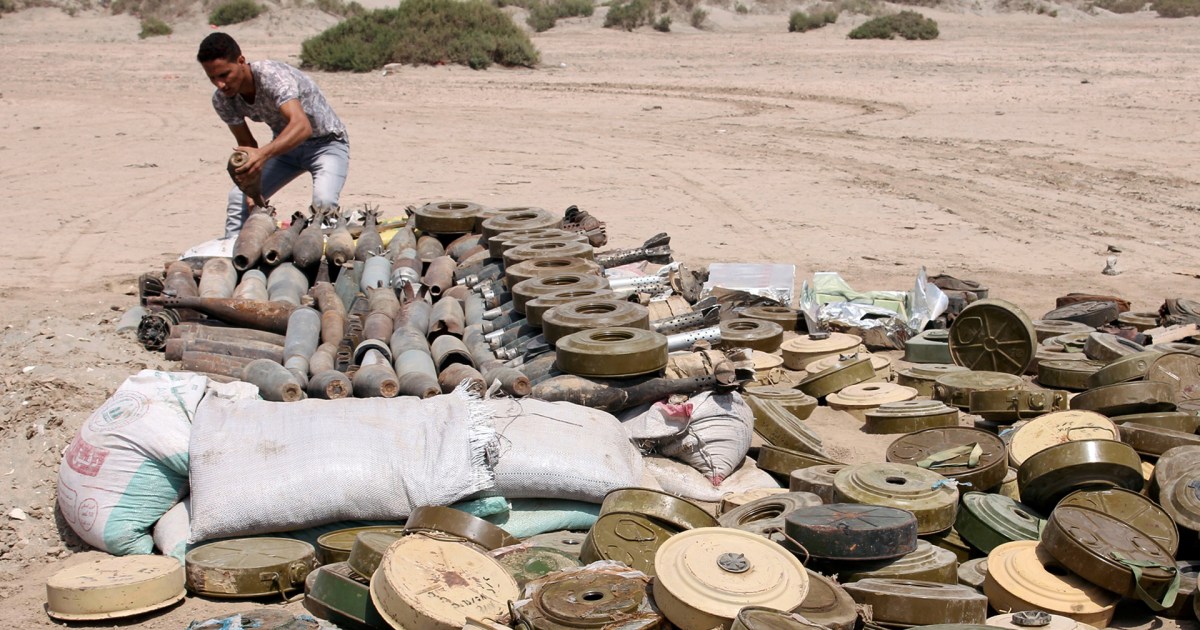The UN Special Envoy for Yemen Martin Griffiths and the US envoy Tim Lenderking discussed with senior Yemeni leaders in Riyadh the Saudi peace initiative, after their meeting with a Houthi delegation in Muscat, while the battles in Marib are continuing.
The Yemeni President, Abd Rabbu Mansour Hadi, received at his residence in Riyadh the UN envoy, Griffiths. During the meeting, the president said, "The government made many concessions with the aim of ending the conflict in Yemen, but it was met with intransigence and hardening by the Houthi militia."
Hadi stressed that the government will continue to deal positively with any initiatives and efforts to bring peace to Yemen, based on its keenness to stop the bloodshed in the country and end the suffering of millions due to the deterioration of living, health and educational conditions, he said.
The Yemeni News Agency quoted President Hadi as saying, "The continued escalation of the Houthis in Marib and other governorates confirms their lack of intention to devote themselves to peaceful options to end the war."
Foreign Minister Ahmed Awad bin Mubarak also met with the UN and US envoys in Riyadh, where the minister renewed the government's welcome to the Saudi initiative, noting that the Houthi group’s response by escalating attacks confirms its “dependence on Iran's destabilizing agenda for the security and stability of the region.”
For his part, Griffiths expressed his appreciation for the Yemeni government's position on peace efforts aimed at reaching a comprehensive settlement, stressing the continuation of diplomatic efforts to end the war and mitigate the effects of the humanitarian crisis.
Muscat talks
Griffiths and Lenderking had held talks in Muscat, with great discretion, to reach a comprehensive ceasefire in Yemen.
Griffiths met in Muscat, the chief negotiator of the Houthis, and discussed with him a ceasefire, the opening of Sanaa airport and the resumption of political dialogue, as these talks came in coordination with Lenderking, but without disclosing their details.
Griffiths also met with the Omani Foreign Minister Badr bin Hamad Al Busaidi, describing his conversation with him as constructive.
The Omani Minister of Foreign Affairs also met Lenderking, and the meeting dealt with the efforts made by all parties to end the war in Yemen.
And last Monday, Saudi Arabia announced the launch of an initiative to solve the Yemeni crisis, including a ceasefire, reopening Sanaa airport, permitting the import of fuel and foodstuffs through the port of Hodeidah (west) and the resumption of political negotiations between the government and the Houthis.
Battles and drones
On the ground, military and local sources said that violent clashes broke out between the Yemeni army forces and the Houthis at the Kassara front, northwest of the city of Ma'rib.
The sources added that the Houthis launched a violent attack, before the army launched a counterattack, with the support of coalition aircraft.
The sources indicated that the Houthis bombed camps for the displaced with heavy weapons, which led to the displacement of dozens of families to other camps.
The Executive Unit for the Management of Displaced Persons Camps confirmed that there were wounded and burning of tents as a result of the bombing, and the displacement of dozens of families from 3 camps for the displaced.
Meanwhile, the Saudi Press Agency said that the Kingdom's defenses intercepted two booby-trapped drones, which were launched towards the southern region, and managed to destroy them.
It also announced the destruction of an explosive drone launched by the Houthis towards Khamis Mushait.
The Saudi agency added that two booby-trapped boats belonging to the Houthis were destroyed before the attack was carried out from Hodeidah.

